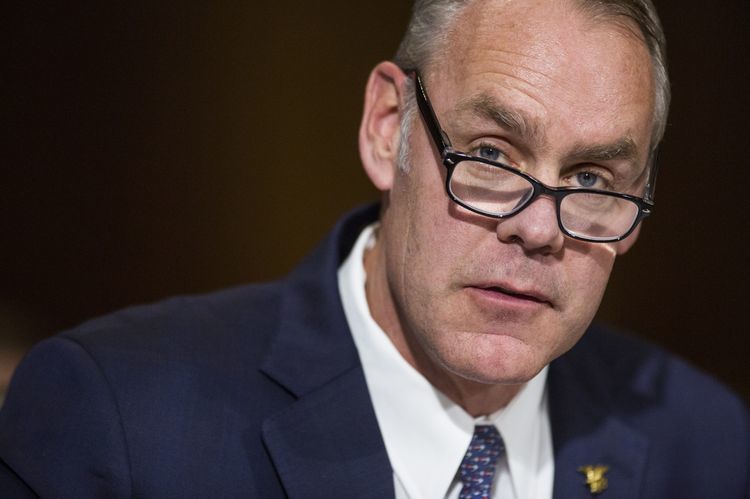
The Trump administration committee that helps set royalty payments for coal, oil and gas extracted from public lands is stacked with industry insiders who stand to directly benefit from lower payments to the public, a U.S. environmental group said in a lawsuit.
The Interior Department’s Royalty Policy Committee, created in September 2017 by Secretary Ryan Zinke, operates “in secret” to advance the goals of so-called extractive industries that paid a total of almost $7 billion in royalties to the government last year, the Western Organization of Resource Councils said in a complaint filed in federal court in Missoula, Montana.
“Secretary Zinke is breaking the law in order to barter off America’s public resources to his corporate cronies and shield them from paying a fair value for the privilege,” Anne Harkavy, executive director of Democracy Forward, which filed the suit, said Tuesday in a statement.
The agency has previously described the 20-member committee as being mostly comprised of non-industry participants, including representatives from academia, public interest groups, renewable energy, states and American Indian tribes. The committee conducts open meetings with the stated goal of modernizing the royalty-collecting process to benefit the public.
The committee’s chairman is former Department of Energy official Vincent DeVito, who was initially hired last May to advise Zinke on energy policy. DeVito, a lawyer, ran Zinke’s political-action committee and previously represented extraction industry companies, the environmental group said.
Money generated from extraction royalties is used by some states to fund schools and other programs. Several public interest and conservation groups applied to join the committee but were denied, according to the suit.
Heather Swift, a spokeswoman for the Interior Department, declined to comment on pending litigation.
The segment of the committee set aside for academia and public interest includes members who consult for extractive industries, according to the suit. One of those members appears to lack any related experience and was initially supposed to be an industry representative, according to the suit.
The department made the committee even more “lopsided” by adding two non-voting “subject matter experts to represent the public interest,” according to the suit, including David Kreutzer of the conservative Heritage Foundation and Paul Blair of Americans for Tax Reform.
Kreutzer said he doesn’t believe the committee is lopsided and he doesn’t represent the industry.
“You want taxpayers to get a fair deal, but you also want to look at the impact on the economy,” Kreutzer said in a phone call. “We want to make sure we’re not stifling the economy, that we can produce more energy and do that efficiently and cleanly.”
Recommended for you
